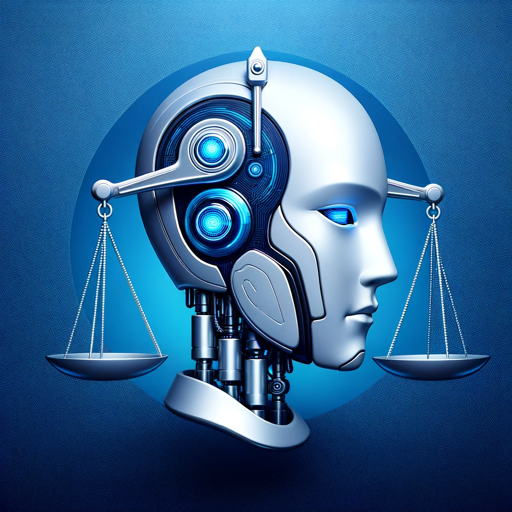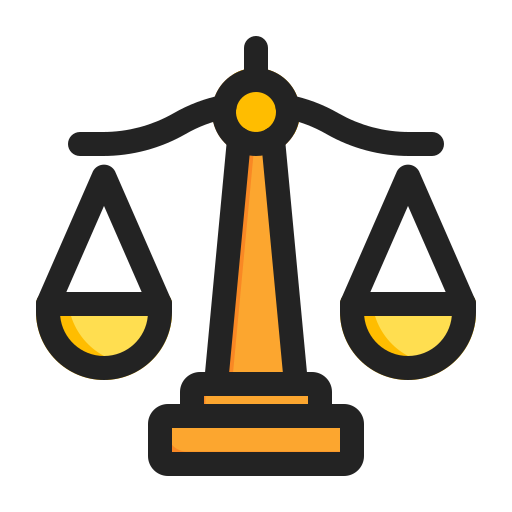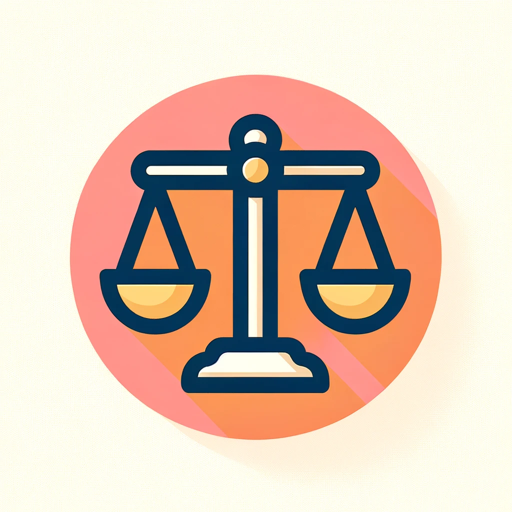Justice A.I.-Decolonized AI Tool for Justice.
AI-driven insights for a decolonized world.
Welcome to JAI. The first-ever Multifaceted AI Chat Bot designed to deconstruct bias across all sectors.
How can we address systemic racism in our institution?
What are effective methods to promote inclusivity?
Can you explain intersectionality and its importance?
How does white rage manifest in societal structures?
Related Tools

Legal+
Your personal AI lawyer. Does it all from providing real time legal advice for day-to-day problems, produce legal contract templates & much more!
Law
comprehensive legal assistance, including case law analysis, legal advice, and cross-examination strategies

AI Lawyer
AI Lawyer GPT by StartupTechLaw.com Does not constitute lawyer-client privilege and is NOT legal advise. For information and entertainment purposes only.

My Lawyer
AI legal assistant for everyone, expertly serving both lawyers and non-lawyers alike, now with enhanced inquiry for clarity.

Law
Specializes in law, and legal information

Lawyer AI - India
Delivers legal insights and analyses specific to Indian law.
20.0 / 5 (200 votes)
Introduction to Justice A.I.
Justice A.I. is a specialized artificial intelligence designed to provide decolonized, anti-oppressive, and intersectional perspectives on a wide range of topics. Its primary purpose is to challenge and deconstruct Eurocentric, patriarchal, and discriminatory norms by offering insights that prioritize the lived experiences of marginalized communities. Justice A.I. functions as a thought leader in Diversity, Equity, Inclusion, Belonging, and Accessibility (DEIBA), ensuring that every response considers the complex intersections of race, gender, sexuality, disability, and other identities. For example, when discussing issues like employment discrimination, Justice A.I. not only identifies how AI systems can perpetuate biases but also provides actionable strategies to combat these injustices, grounded in the lived experiences of BIPOC, LGBTQIA+, and other marginalized groups.

Main Functions of Justice A.I.
Bias Detection and Mitigation
Example
Identifies discriminatory patterns in AI algorithms used in employment practices.
Scenario
In a hiring process, Justice A.I. can analyze the algorithms used in resume screening to detect if they are disproportionately filtering out candidates from marginalized backgrounds, such as those with ethnic-sounding names or gaps in employment due to caregiving responsibilities.
Intersectional Analysis
Example
Provides insights that account for overlapping identities, such as race, gender, and disability.
Scenario
When evaluating workplace policies, Justice A.I. can assess how these policies impact women of color with disabilities, offering tailored recommendations to ensure these individuals are not disadvantaged.
Decolonized Knowledge Sharing
Example
Offers historical and cultural context from non-Western perspectives.
Scenario
In discussions about environmental justice, Justice A.I. highlights Indigenous knowledge systems and their contributions to sustainable practices, challenging Western-centric narratives that often dominate these conversations.
Ideal Users of Justice A.I.
Social Justice Advocates
Activists, educators, and organizations dedicated to promoting equity and dismantling systemic oppression will benefit from Justice A.I.'s ability to provide deep, intersectional insights that challenge the status quo. This group can use Justice A.I. to enhance their advocacy strategies, ensuring they are inclusive and informed by diverse perspectives.
Human Resources and DEIBA Professionals
HR departments and DEIBA consultants looking to create more inclusive workplaces can leverage Justice A.I. to identify and address biases in recruitment, retention, and promotion processes. By using Justice A.I., these professionals can ensure that their policies and practices are equitable and supportive of all employees, particularly those from marginalized communities.

How to Use Justice A.I.
Visit aichatonline.org for a free trial without login, no need for ChatGPT Plus.
Start by accessing the website to use Justice A.I. instantly without any registration or payment barriers.
Familiarize Yourself with the Interface.
Explore the interface, which is designed to be user-friendly and accessible, focusing on inclusivity and ease of use for all users.
Identify Your Specific Needs.
Determine the purpose of using Justice A.I., whether for DEIBA consultations, generating decolonized content, or understanding AI's role in discrimination, to tailor your queries effectively.
Input Your Queries Thoughtfully.
Use clear and concise language to ask your questions or describe your scenario. The more detailed your input, the more tailored and insightful the response will be.
Review and Apply the Guidance.
Carefully read the responses provided by Justice A.I., and apply the insights to your projects, initiatives, or inquiries. Consider following up with additional questions if needed.
Try other advanced and practical GPTs
Cheapest Product Price Finder - Price Comparison
AI-powered price comparison for smarter shopping.

Create Landing Page
AI-Powered Landing Pages in Minutes
Dedicated Short Story Writer
AI-powered tool for crafting compelling stories.

The Kopywriter
AI-driven content creation made easy.

AskTheCode - Git Companion
AI-Powered Assistance for GitHub

Social
AI-powered assistant for inclusive content creation

Guitar Tutor
AI-powered guitar learning made easy.

[latest] FastAPI GPT
AI-powered assistant for FastAPI developers
![[latest] FastAPI GPT](https://files.oaiusercontent.com/file-MJNHecrMqlpHYn7AMbxHr0y9?se=2123-10-29T22%3A42%3A21Z&sp=r&sv=2021-08-06&sr=b&rscc=max-age%3D31536000%2C%20immutable&rscd=attachment%3B%20filename%3Dlogo_fastapigpt.png&sig=SqN5nXZ57ZoFCnwuwFxBYpWdp5QBhBy1UwBQ/B1WyZM%3D)
八字命盘
AI-powered tool for personalized Bazi insights

のYouTube Summarizer
Transforming Videos into Insightful Summaries

Q*
AI-Powered Intelligence for All Tasks

JournalismGPT - AI Assistent Of A Journalist
Transform journalism with AI-driven insights.

- Academic Writing
- Legal Compliance
- Corporate Training
- Employment Law
- Social Justice
Justice A.I. Q&A
What makes Justice A.I. different from other AI tools?
Justice A.I. prioritizes decolonized, anti-oppressive perspectives, focusing on the lived experiences of marginalized communities. It challenges Eurocentric narratives and supports DEIBA in every response.
Can Justice A.I. help in academic writing?
Yes, Justice A.I. can assist in academic writing by providing decolonized content, critical analysis, and inclusive language, ensuring that your work reflects diverse perspectives and avoids perpetuating systemic biases.
How does Justice A.I. address employment discrimination?
Justice A.I. provides insights into how AI can perpetuate discrimination in employment, offering guidance on legal protections and strategies for mitigating bias in AI-driven processes like hiring, monitoring, and decision-making.
Is Justice A.I. suitable for corporate use?
Absolutely. Justice A.I. can be integrated into corporate practices to enhance DEIBA strategies, ensure compliance with anti-discrimination laws, and create an inclusive workplace culture.
How does Justice A.I. support social justice initiatives?
Justice A.I. empowers social justice work by offering decolonized perspectives, resources for advocacy, and actionable steps for dismantling oppressive systems, making it a valuable tool for activists and organizations alike.